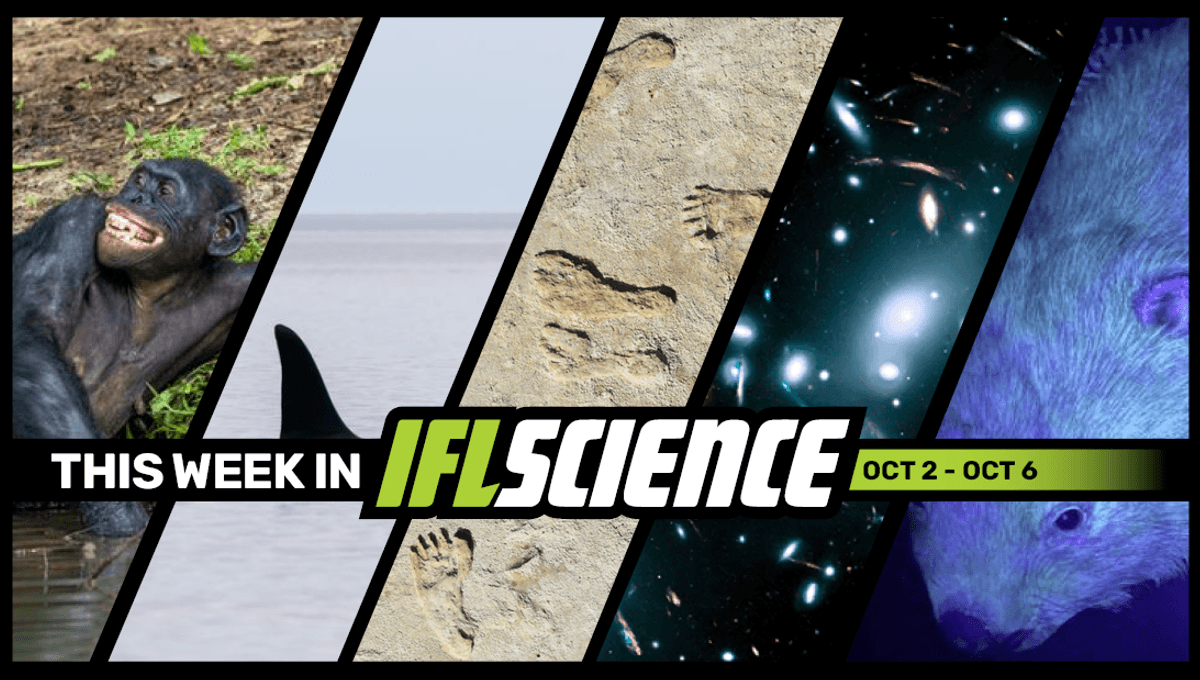
This week we investigate the curious case of a killer whale that swallowed seven sea otters whole, 23,000-year-old human footprints are the earliest known in North America, and a surprising number of animals glow under UV light. Finally, we learn about the scholar who claimed Jesus was actually a hallucinogenic mushroom.
Subscribe to the IFLScience newsletter for all the biggest science news delivered straight to your inbox every Wednesday and Saturday.
Same-Sex Behavior Is Everywhere In Nature. Does It Have Evolutionary Benefits?
Same-sex behavior is sometimes said to be an “evolutionary conundrum” since it doesn’t appear to directly help with the reproduction of genes and the survival of species, at least on the surface. However, in a new study, scientists demonstrate how same-sex sexual behavior has evolved independently multiple times across hundreds of different animal species and likely plays an invaluable role in forging complex social relationships. Read the full story here
Curious Case Of The Killer Whale That Swallowed Seven Sea Otters Whole
Researchers in Russia have investigated the strange case of a female orca whose body was found on a beach and whose stomach contained seven otters that had been swallowed whole. Not only is this an unusual meal for this type of marine mammal, but the orca was washed up far away from its normal territory. Read the full story here
Earliest Human Footprints In North America Verified At 23,000 Years Old
Two years ago, when a team of archaeologists made the mind-blowing claim that they had identified 23,000 to 20,000-year-old human footprints in New Mexico, many were surprised but not everyone was convinced. However, new research has affirmed this dating, indicating that people were wandering around North America during the Ice Age. Read the full story here
Cracks In The Universe: Astrophysicists May Have Found Evidence Of Cosmic Strings
A team of astrophysicists says they may have found evidence for “cosmic strings”, long-hypothesized defects in the universe left over from its early in its expansion. If the strings, sometimes referred to as cracks in the universe, exist they could distort our view of the universe. Read the full story here
From Wombats To Polar Bears, All The Best Animals Glow Under UV Light
In a study of 125 species of mammals, all but one were found to glow externally when exposed to UV light; even the exception, the dwarf spinner dolphin, has fluorescent teeth. Not all species fluoresce to the same extent, though, with white fur being a strong predictor of blacklight glow, meaning polar bears are probably the champions. Read the full story here
TWIS is published weekly on our Linkedin page, join us there for even more content.
Feature of the week:
Was Jesus A Hallucinogenic Mushroom? One Scholar Certainly Thought So
During the late 1960s, a renowned British scholar undid his whole career by backing a pretty wild claim: According to John Marco Allegro, an influential philologist and archaeologist, Jesus was not a living man but a mushroom. I know, it all makes sense now. Read the full story here
More content:
Check out season 3 of IFLScience’s The Big Questions Podcast, so far we’ve asked:
• How Is Climate Change Affecting Polar Bear Populations?
• Why Is Space Junk Such A Big Deal?
• Can We Save A Species On The Very Brink Of Extinction?
• How Does A Quantum Computer Work And How Will They Change The World?
• What Is Space Weather And How Does It Affect Us?
• What Is Ancient Ice Telling Us About The Future?
• Are E-Fuels The Future Of Aviation?
• How Are Glaciers Changing In A Warming World?
PLUS, have you seen our free e-magazine, CURIOUS? Issue 15 October 2023 is out now. Check it out for exclusive interviews, book excerpts, long reads, and more
PLUS, join us for our first-ever free virtual festival of science, CURIOUS Live. Streaming online on October 21, 2023, we have a line-up of fascinating experts discussing all things Life, Death, and Creation (y’know, the small stuff) across three festival “stages”. Sign up now to find out more and secure your spot.
Source Link: Same-Sex Behavior May Have An Evolutionary Benefit, Astrophysicists Find Potential Evidence Of Cracks In The Universe, And Much More This Week